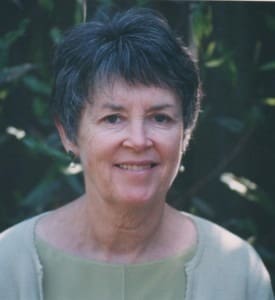 Judith Kay Nelson, MSW, PhD is a former Dean and is currently on the faculty of The Sanville Institute for Clinical Social Work and Psychotherapy and serves as Sanville’s Accreditation Liaison Officer to WASC. She has taught attachment and neurobiology in the clinical social work doctoral program at Smith College, and attachment, grief and loss at Portland State University. She has also taught and presented throughout the United States and Europe and is the author of and numerous books, articles and chapters on laughter, crying, grief, laughter, and attachment.
Judith Kay Nelson, MSW, PhD is a former Dean and is currently on the faculty of The Sanville Institute for Clinical Social Work and Psychotherapy and serves as Sanville’s Accreditation Liaison Officer to WASC. She has taught attachment and neurobiology in the clinical social work doctoral program at Smith College, and attachment, grief and loss at Portland State University. She has also taught and presented throughout the United States and Europe and is the author of and numerous books, articles and chapters on laughter, crying, grief, laughter, and attachment.
As I reach my 75th year, I find myself thinking about my professional legacy—a monetary one would be nice of course and I hope to do that as well, but I am thinking here of what to leave behind that will have meaning for those who come after me. As I ponder this wish, it has been helpful to reflect on what helped me to accomplish my professional goals.
When I applied to Sanville at age 34, I was 10 years post-MSW and had been doing what we then called psychiatric social work, that is individual, couple and family therapy in hospitals and social agencies. I had just begun a private practice and was feeling professionally isolated in my small North Bay town. Practicing on my own, I felt less sure of my clinical skills than I had working under agency supervision. I also wanted very much to write and publish some journal articles and to present at professional conferences, but my theoretical knowledge base felt fragmented and flimsy. Before putting myself out publically, I wanted to feel solid in what I knew and with how it all fit together with my clinical work.
By the time I completed my Sanville degree in 1979, many of my professional goals had been met. My theoretical foundation and my critical thinking skills were solid enough that I could intelligently field questions or criticism from many different theoretical perspectives. Similarly, my clinical skills had grown and developed and I no longer felt professionally isolated because I now belonged to the Sanville academic and clinical community.
Though I did hone my writing skills at Sanville, particularly in writing my dissertation “An Ego Psychological and Object Relations Study of Crying,” my goal of publication remained unfulfilled until a Sanville colleague’s brother got a job at a well-known professional publishing house in New York. Through him I got a serious audience for my first book and landed a contract for Seeing Through Tears: Crying and Attachment. Once I broke the publication barrier, I was well positioned to submit journal articles and for a second book, What made Freud laugh: An Attachment perspective on laughter. That was followed by a third book, Adult Attachment in Clinical Social Work, co-edited with a colleague I met while teaching at the Smith College School for Social Work doctoral program as part of the Sanville/Smith collaboration.
After the books and articles were published, I was also able to realize some of my (secret) dreams: being invited to present at an international conference (The Netherlands) and seeing my theories about crying and laughter as attachment behavior inspire further research. There have now been a number of dissertations that have spun off my work (two in Australia) and an edited book growing out of one of those dissertations that feels to me like the professional grandchild of my original Sanville dissertation. Recently, several researchers at the University of Maryland used my hypotheses about types of crying and attachment style to look at crying in the clinical hour (Robinson, N, Hill, C. and Kivlighan, D. (2015) Journal of Counseling Psychology, 62(3), 379-392, thus fulfilling another of my unspoken dreams.
Thanks to my Sanville education and the ongoing growth and development of my dissertation topic, I feel a sense of satisfaction with my personal professional legacy. However, because of what I owe to Sanville, I feel strongly that I want to expand my legacy to include Sanville itself, and so agreed to become our Accreditation Liaison Officer (ALO) working with the WASC Senior College and University Commission toward achieving accreditation. I want to assure that the Sanville Institute for Clinical Social Work and Psychotherapy is a legacy that we can pass along to future generations; that mental health clinicians will find a place where they can grow and develop professionally in order to meet their own personal and professional goals. To complete the circle, I hope that future generations of graduates, in turn, will pass along what they have gained at Sanville to those who follow in their footsteps.
